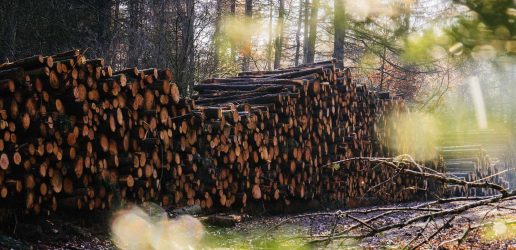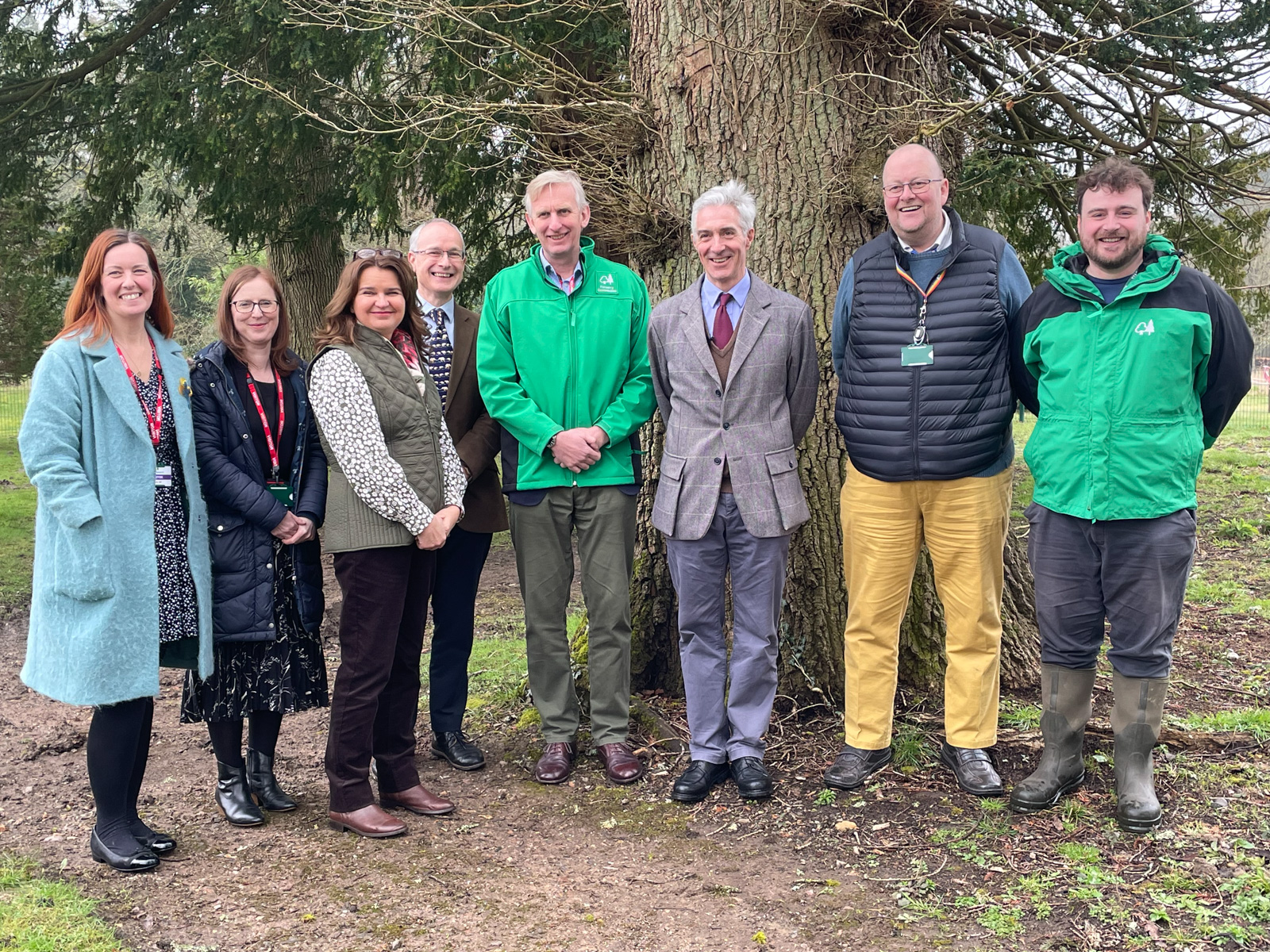 Lord Robbie Douglas-Miller OBE and Defra colleagues meet Richard Stanford, Chief Executive, Forestry Commission, James Pendlebury, Chief Executive, Forest Research, and Gerard Clover, Head of Tree Health, and colleagues at the Alice Holt research station.
Lord Robbie Douglas-Miller OBE and Defra colleagues meet Richard Stanford, Chief Executive, Forestry Commission, James Pendlebury, Chief Executive, Forest Research, and Gerard Clover, Head of Tree Health, and colleagues at the Alice Holt research station.
Lord Douglas-Miller OBE, Parliamentary Under-Secretary of State at Defra and Minister for Biosecurity, Animal Health and Welfare, visited Forest Research’s Alice Holt research station on Monday 11 March 2024 to find out more about our work protecting trees, woodlands and forests from invasive pests and diseases.
Dr Gerard Clover, Forest Research’s Head of Tree Health, gave a brief introduction to our work and how this supports tree health policy and Dr Max Blake, Head of Entomology, briefed Lord Douglas-Miller on our response to Ips typographus, a major threat to conifer forestry, including the diagnostics, surveillance and research we’re undertaking to inform the UK’s response.
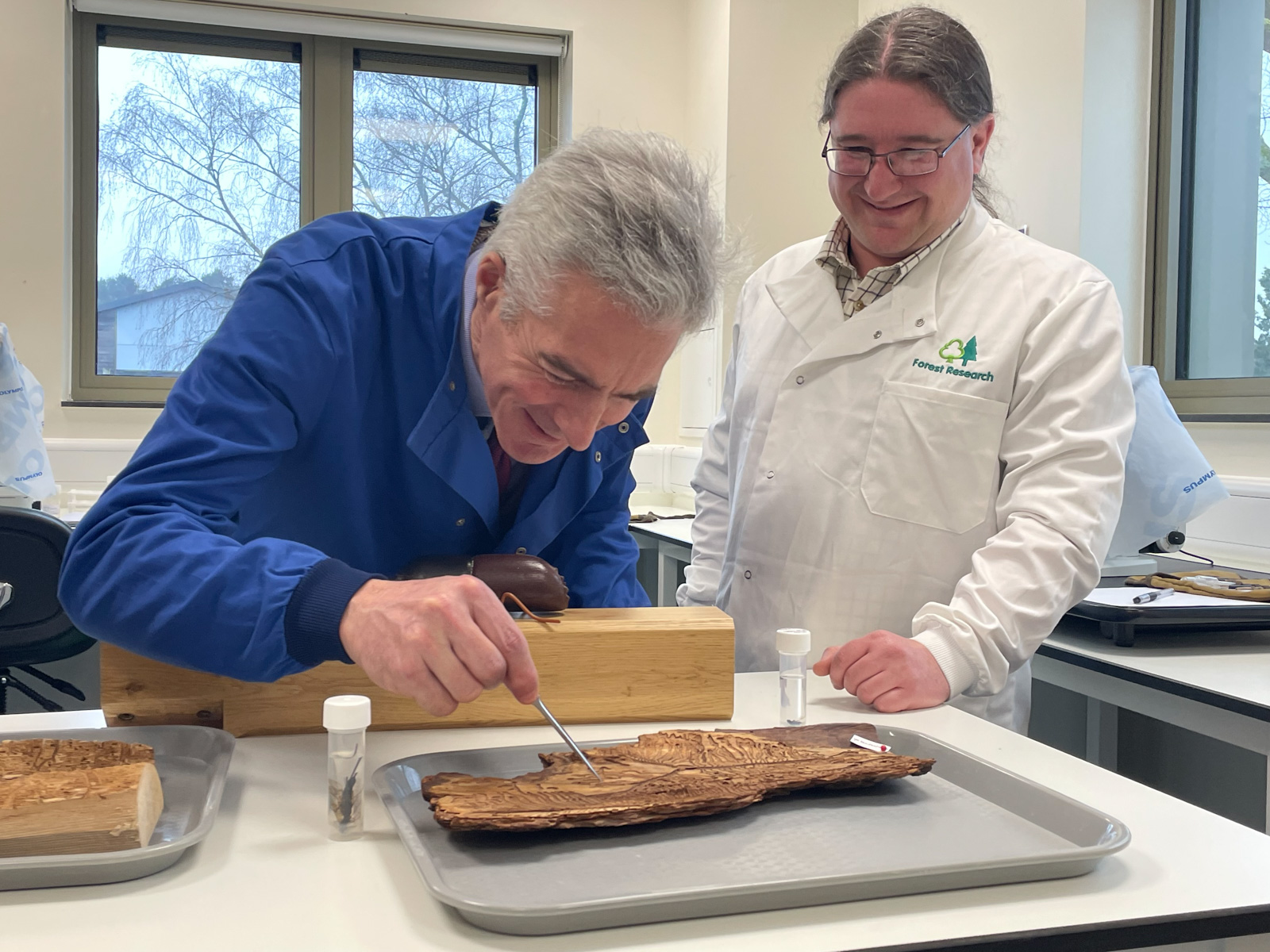 Dr Max Blake, Head of Entomology, shows an Ips typographus breeding gallery to Lord Douglas-Miller OBE
Dr Max Blake, Head of Entomology, shows an Ips typographus breeding gallery to Lord Douglas-Miller OBE
Dr Katy Reed outlined our preparedness for the exotic beetle, Emerald Ash Borer; the beetle is not present in the UK but is spreading westwards from eastern Europe. Pathology response manager, Mick Biddle, highlighted the work being done by Forest Research to develop a biological control for Chestnut blight (Cryphonectria parasitica) and potential management approaches.
Prof James Pendlebury, Forest Research’s Chief Executive, said: “We were delighted to host Lord Douglas-Miller to discuss our research, diagnostic, surveillance and research activities aimed at protecting the nation’s trees and woodlands.
“Our work as part of the UK’s Plant Health service and close collaboration with Defra Plant Health colleagues was highlighted as an excellent example of what can be achieved when people work together across the policy, research and operational delivery boundaries.
The critical role private woodland owners, environmental NGOs, community woodland groups and individuals play as part of our tree health monitoring and response network was also acknowledged.”
Recent News
View All news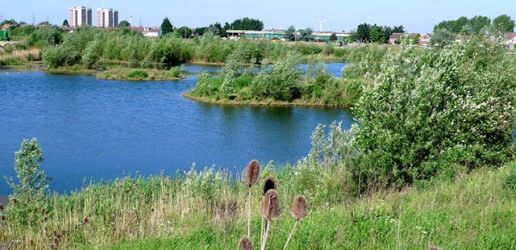
New land regeneration resources for creating green spaces on previously used land now available
The new resources bring together the latest learnings on land regeneration and climate change, and optimal soil thickness for planting on previously used land.
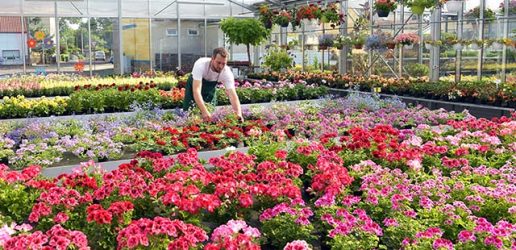
New national survey launched to strengthen plant pest and disease detection across UK horticulture
UK horticulture and landscaping businesses invited to take part in survey to strengthen non-native plant pest and disease detection and reporting.
Forestry and timber businesses across the UK are being asked to take part in an annual survey programme to collect data about the UK timber industry.

New land regeneration resources for creating green spaces on previously used land now available
The new resources bring together the latest learnings on land regeneration and climate change, and optimal soil thickness for planting on previously used land.

New national survey launched to strengthen plant pest and disease detection across UK horticulture
UK horticulture and landscaping businesses invited to take part in survey to strengthen non-native plant pest and disease detection and reporting.
Forestry and timber businesses across the UK are being asked to take part in an annual survey programme to collect data about the UK timber industry.

